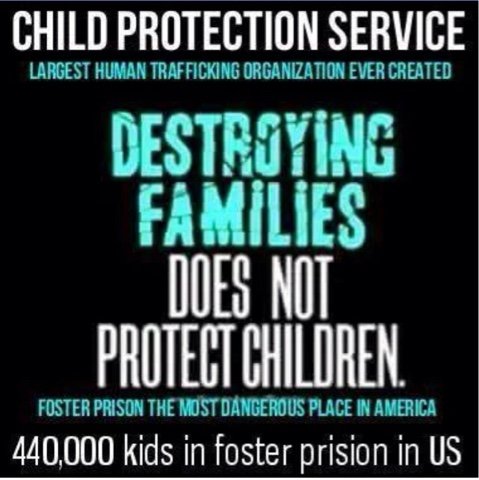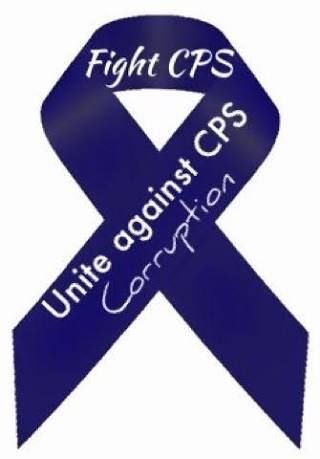Thank God for the whistle blowers. People who love justice and work to achieve it must have a special place in the heart of the Lord, as they certainly do risk plenty to bring us the truth. If it weren't for the whistle blowers who have come out of the horribly corrupted CPS milieu of the Western world, much of the evil they intentional do might be excused as "mistakes" or bureaucratic incompetence, rather than the PLANNED AND CAREFULLY EXECUTED anti-family agenda that it is.
This is Part II of my commentary on the lengthy interview cited in yesterday's article. The interviewers spent four hours talking with a former lower-level CPS administrator who, as part of her duties, had access to a lot of information--mostly computerized--that the individual caseworkers in her department, did not. This review begins with the 35-minute mark and carries forward to about 1:10.

During the first part of this segment, the whistle blower (going by the name of "April") tells us about one of the caseworkers in her department who was also a lawyer. That's right--something was apparently so lucrative in terms of off-the-books benefits that this lawyer was willing to forego what would normally be a much more lucrative career to live on a caseworker's salary. We learn that this person was one of a small coterie of caseworkers who constantly drew praise from the director, had their pictures on her door, received commendations and bonuses, etc. April made it clear that those caseworkers who came in to the system with the idea of doing good, either quickly got out, or they were the ones largely ignored by the director, and/or given other obvious sleights. The lawyer used an alias because the word had gotten out how corrupt this person was, and the alias was even used before the "children's court," an obvious violation of civil procedure. April contends there was a huge "black market" (including kickbacks) in play with this lawyer/caseworker and the coterie of corrupt caseworkers surrounding the director, but admitted lacking proof.
April then talked about the history of CPS in her state. When it began, it was truly there to help families in need. for example, if a home burned, social workers from CPS would help take care of children, find temporary housing for the family, wash dishes, etc. i.e. they were truly a legitimate "social service" at the start, but then they quickly began morphing into the anti-family "monster" they are now. "They sure don't do dishes anymore," April said with disdain.

Next, the interview turned to a discussion of preferment to certain types of adopters, when the department had children available for adoption--which April said typically would bring the department about $100,000 per adoptee. (The interviewers had been estimating the department received about $3000-4000 each, but they were quickly corrected and stunned by the truth.) As it turns out, homosexual couples which represented about 3% of the population, says April, were getting 70-80% of children available for adoption. The preferment was so acute, that people were being told to pretend they were homosexuals in order to "go to the front of the list." April went on to say that, post-adoption, even if the homosexual adopters were known to be homeless, drug-addicted, and even physically abusive, that the CPS system would cover for them, and fight hard to prevent removal attempts.
The term "adoptable" came up for further clarification at this point, after having been used earlier in the interview without the interviewers questioning what April meant by it. April defined the term as a child who is desirable, i.e. not overly troubled, not on prescription Schedule II drugs, not likely to be violent, etc. In other words, if the children were truly needy in the classic sense of what "social services" are thought to be about, they were not "adoptable," and only desirable children were the ones highly sought after by potential adoptive couples and "provided" by CPS. Children who were truly in danger of abuse and possibly truly needing removal almost always received a lower priority for CPS attention and actions.

Then one of the interviewers asked why the cases opened by CPS were always in the child's name, and not the parent's names...because "after all, it is the parents who are being charged." April replied that this was helpful for preventing tracking of the cases by people outside the agency. She also then made it very clear that parents are NOT CHARGED WITH A CRIME, and that they should be.
April went on to say that CPS avoids jury trials at all costs. Jury trials can not be employed when the parents are not charged with a crime, and when the case remains in the McCourt Systems specially designed for the CPS trafficking networks. "Children should be charged with a crime, and get their day in a real court," April contends. If this were to happen, she says, they would invariably retain custody, as CPS never (seldom) has any kind of real "case" against the parents, and a jury trial would mean they were then forced to prosecute the case under normal rules of procedure, discovery hearings/processes, actual disclosure of pertinent documents to the defense, etc.

"Follow the money" was the theme of this last segment of the interview for today. April claims that everything in CPS is driven by money, and that following the trails of where the money comes from, and how it is spent would reveal to the public the degree of corruption within the agency. She claimed that everything that CPS does is about "creating clients" (i.e. adoptable "products") and about guaranteeing their own future. There is little to no concern about actually helping children or families, and when a new caseworker is hired, they either figure that out quickly and quit, or they quickly see the route to "success" at the job, and join into the corrupt milieu with relish.
This interview is really amazing. I would love to see April deposed before a major Congressional hearing on CPS corruption.
We can hope and pray, right?
Part III tomorrow....
God bless @familyprotection!
This post was upvoted an resteemed by @thethreehugs. Thank you for your support of @familyprotection.